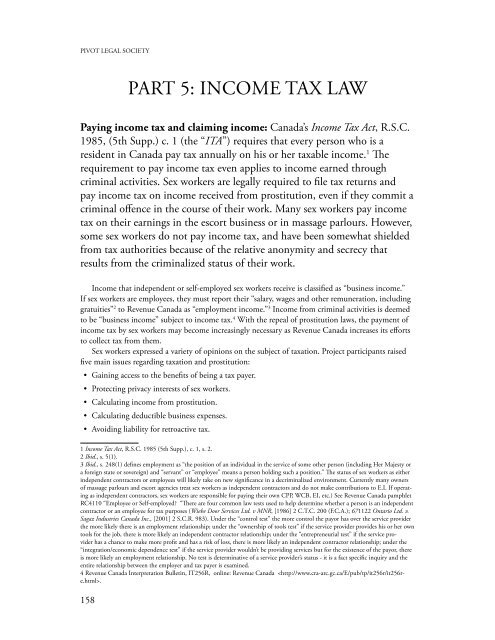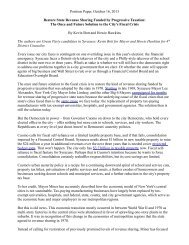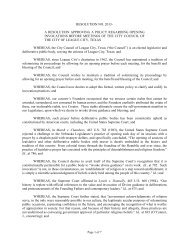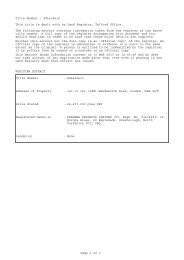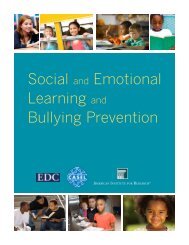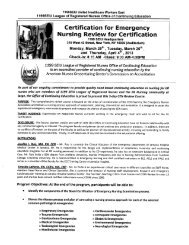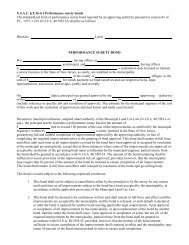Beyond Decriminalization: Sex-work, Human Rights and a New ...
Beyond Decriminalization: Sex-work, Human Rights and a New ...
Beyond Decriminalization: Sex-work, Human Rights and a New ...
- No tags were found...
Create successful ePaper yourself
Turn your PDF publications into a flip-book with our unique Google optimized e-Paper software.
PIVOT LEGAL SOCIETYPART 5: Income Tax LAWPaying income tax <strong>and</strong> claiming income: Canada’s Income Tax Act, R.S.C.1985, (5th Supp.) c. 1 (the “ITA”) requires that every person who is aresident in Canada pay tax annually on his or her taxable income. Therequirement to pay income tax even applies to income earned throughcriminal activities. <strong>Sex</strong> <strong>work</strong>ers are legally required to file tax returns <strong>and</strong>pay income tax on income received from prostitution, even if they commit acriminal offence in the course of their <strong>work</strong>. Many sex <strong>work</strong>ers pay incometax on their earnings in the escort business or in massage parlours. However,some sex <strong>work</strong>ers do not pay income tax, <strong>and</strong> have been somewhat shieldedfrom tax authorities because of the relative anonymity <strong>and</strong> secrecy thatresults from the criminalized status of their <strong>work</strong>.Income that independent or self-employed sex <strong>work</strong>ers receive is classified as “business income.”If sex <strong>work</strong>ers are employees, they must report their “salary, wages <strong>and</strong> other remuneration, includinggratuities” to Revenue Canada as “employment income.” Income from criminal activities is deemedto be “business income” subject to income tax. With the repeal of prostitution laws, the payment ofincome tax by sex <strong>work</strong>ers may become increasingly necessary as Revenue Canada increases its effortsto collect tax from them.<strong>Sex</strong> <strong>work</strong>ers expressed a variety of opinions on the subject of taxation. Project participants raisedfive main issues regarding taxation <strong>and</strong> prostitution:• Gaining access to the benefits of being a tax payer.• Protecting privacy interests of sex <strong>work</strong>ers.• Calculating income from prostitution.• Calculating deductible business expenses.• Avoiding liability for retroactive tax. Income Tax Act, R.S.C. 1985 (5th Supp.), c. 1, s. 2. Ibid., s. 5(1). Ibid., s. 248(1) defines employment as “the position of an individual in the service of some other person (including Her Majesty ora foreign state or sovereign) <strong>and</strong> “servant” or “employee” means a person holding such a position.” The status of sex <strong>work</strong>ers as eitherindependent contractors or employees will likely take on new significance in a decriminalized environment. Currently many ownersof massage parlours <strong>and</strong> escort agencies treat sex <strong>work</strong>ers as independent contractors <strong>and</strong> do not make contributions to E.I. If operatingas independent contractors, sex <strong>work</strong>ers are responsible for paying their own CPP, WCB, EI, etc.) See Revenue Canada pamphletRC4110 “Employee or Self-employed? “There are four common law tests used to help determine whether a person is an independentcontractor or an employee for tax purposes (Wiebe Door Services Ltd. v MNR, [1986] 2 C.T.C. 200 (F.C.A.); 671122 Ontario Ltd. v.Sagaz Industries Canada Inc., [2001] 2 S.C.R. 983). Under the “control test” the more control the payor has over the service providerthe more likely there is an employment relationship; under the “ownership of tools test” if the service provider provides his or her owntools for the job, there is more likely an independent contractor relationship; under the “entrepreneurial test” if the service providerhas a chance to make more profit <strong>and</strong> has a risk of loss, there is more likely an independent contractor relationship; under the“integration/economic dependence test” if the service provider wouldn’t be providing services but for the existence of the payor, thereis more likely an employment relationship. No test is determinative of a service provider’s status - it is a fact specific inquiry <strong>and</strong> theentire relationship between the employer <strong>and</strong> tax payer is examined. Revenue Canada Interpretation Bulletin, IT256R, online: Revenue Canada .158


